今日推荐开源项目:《里程碑 Milestones》
今日推荐英文原文:《Ouch, JavaScript Is Killing Me》

今日推荐开源项目:《里程碑 Milestones》传送门:GitHub链接
推荐理由:这个项目是一个专门为了里程碑倒数计时制作的应用,日历虽好,但是这个项目专注于里程碑的设计让它也能在日历之外发挥它的作用。
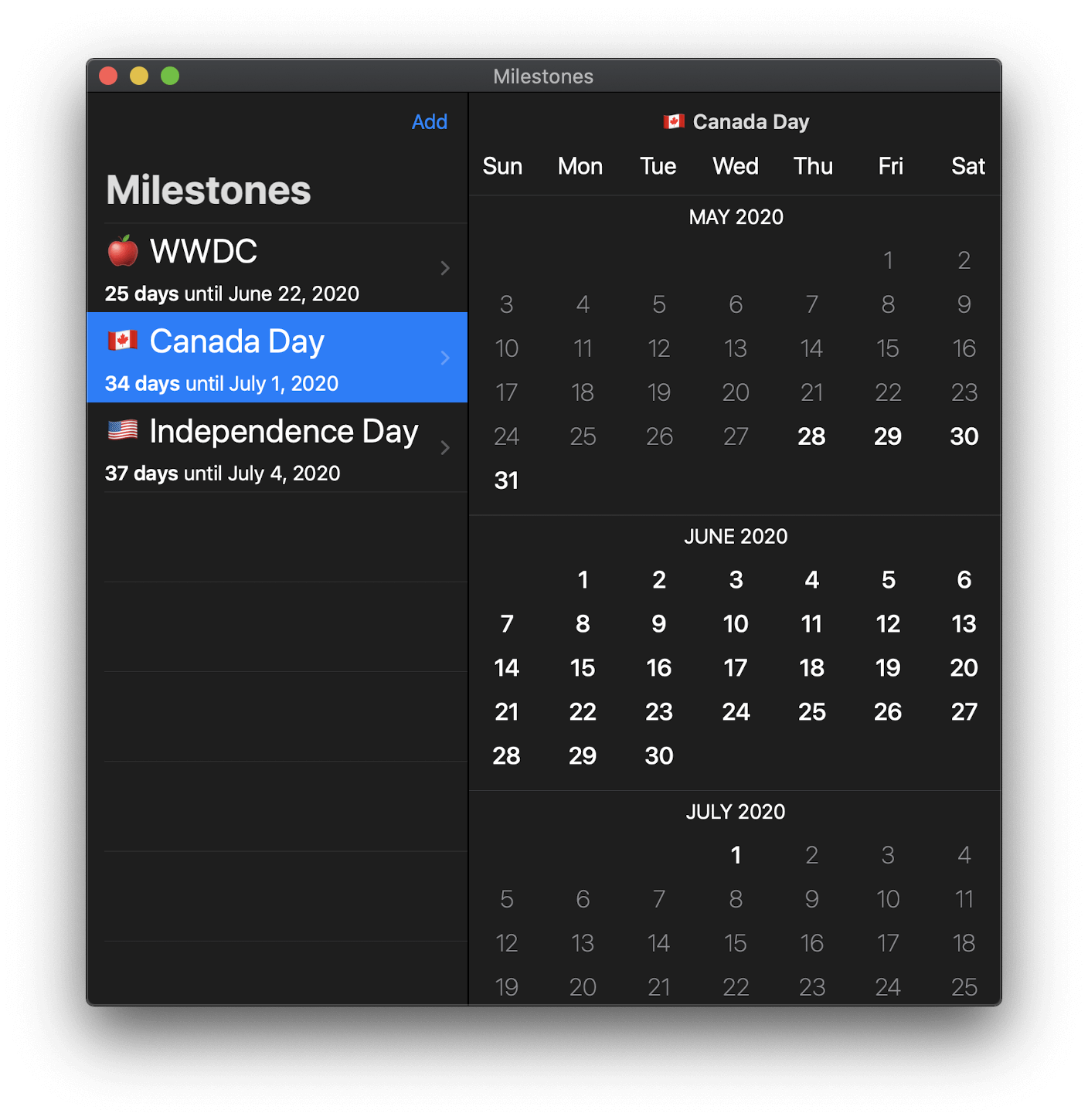
到达第 800 期对我们来说只不过是一个迟早会到达的里程碑,接下来还有无数里程碑等着我们呢。
今日推荐英文原文:《Ouch, JavaScript Is Killing Me》作者:Alice Wang
原文链接:https://medium.com/better-programming/ow-javascript-is-killing-me-8aa0600e049b
推荐理由:下一个里程碑,在几周内改正自己的工作姿势
Ouch, JavaScript Is Killing Me
Ergonomics and how you can set up a healthy workstation
Many of us spend hours at a time on the computer, squinting at code. It doesn’t take long to develop aches and pains. I started to wonder if our computer habits could be permanently damaging our bodies.I did some research on the risks associated with spending long hours on the computer. This article discusses what to watch out for and ways to stay healthy while programming.
Neck and Back
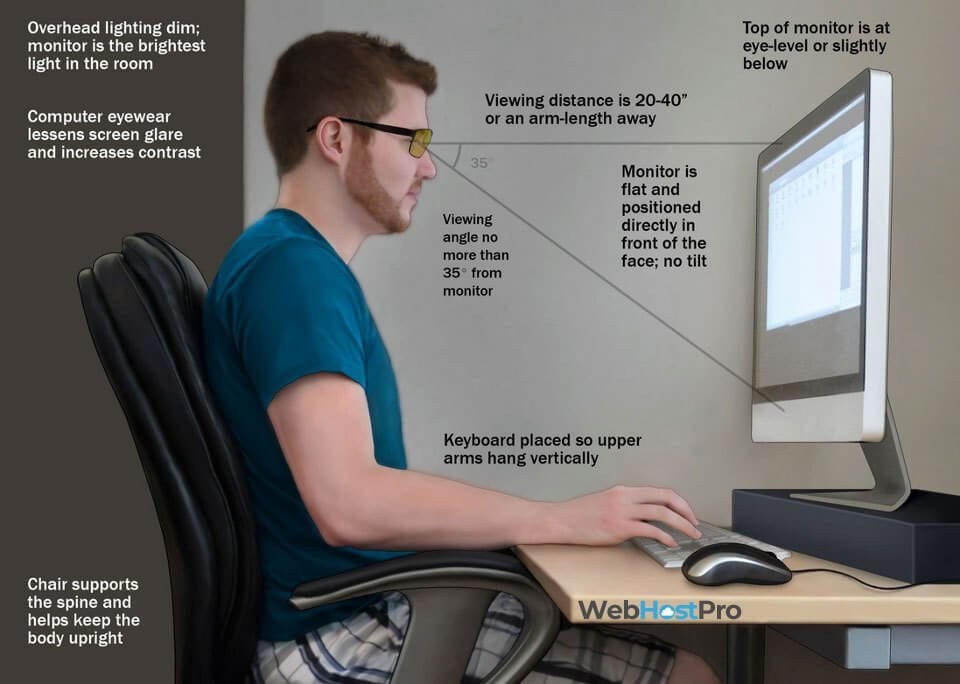
Long hours of sitting, especially in postures that are bad for the spine, can cause chronic pain. The best way to cope with this problem is to prevent the pain in the first place.
The UCLA Spine Center recommends standing up, stretching, and walking for 1-2 minutes for every 30 minutes of sitting in order to loosen up muscles, joints, ligaments, and tendons.
In addition, it’s important to maintain a neutral, upright spine while sitting. Sit in a natural, upright position, and look straight ahead — avoid tilting your head up or down.
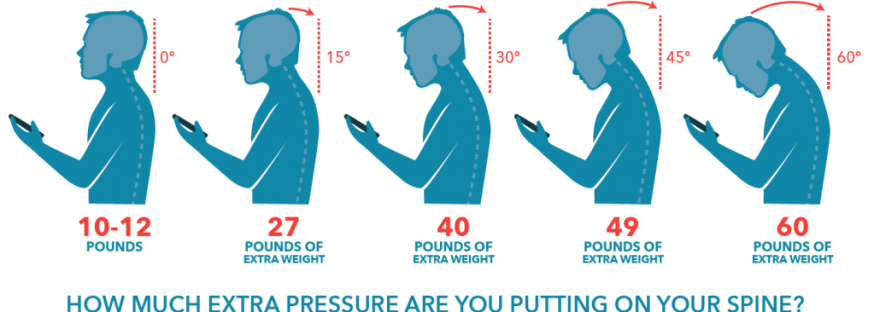
“When you look straight ahead, the weight of your head is between 10 and 12 pounds. Even if you only bend your neck forward 15 degrees to look at your phone, it doubles the weight of your head, making your head weigh around 27 pounds. Imagine bending your neck at 45 degrees — that’s almost 50 pounds of weight your neck muscles, upper back and shoulders are supporting.” — Spine Institute of North America
Any time our carriage is misaligned, some muscles have to strain themselves to support the load, while others become weakened. Overworked muscles can become inflamed, causing arthritis in nearby joints.
Strengthening the muscles that hold the body upright is an effective way to correct and prevent posture-related pain. The Cleveland Clinic recommends trying these muscle-strengthening exercises:
- Superman. Lie on your stomach, and simultaneously raise your arms and legs just a couple inches off the ground. Hold, relax, and repeat.
- Core. Crunches, planks, and leg extensions all help strengthen your core muscles.
- Neck extension. Sit comfortably, and press your head firmly backward into your chair (or car) headrest or into your hands. Hold for 30 seconds multiple times to build strength.
- Shoulder blades. Work your trapezius and rhomboid muscles to help pull your shoulders back. Hold an exercise band in front of you at shoulder height, then stretch it across your chest, bending your arms slightly. Return to the starting position, and repeat.
Eyes
Our eyes are a delicate part of our body. Staring at a screen for too long can lead to tired eyes. This is due to two factors: (1) drying up the surface of the eye, (2) tiring the muscles that hold the eyes in place and contract the eye lens when looking at objects at a close distance.I’ve long wondered if I’ve been wearing down my eyes permanently each time I look at something for too long. The good news is that according to the American Academy of Ophthalmology, eye strain doesn’t lead to permanent damage.
It’s important to remember to blink while using computers because blinking recoats the eye in a tear film that keeps it hydrated. It’s also good to alternate looking at further distances.
The most consistent piece of advice I found is the 20–20–20 rule: Every 20 minutes, take a 20 second break and look at something 20 feet away. This will help prevent eyestrain.
I was considering getting a pair of blue-light glasses, but there’s conflicting evidence on whether or not they help, though any antireflective glasses can reduce harsh glare.
Arms and Wrists

Repetitive strain injury (RSI) is a catchall term used to describe conditions like tendonitis and carpal tunnel syndrome, in which there’s a gradual buildup of damage to muscles, tendons, and nerves from repeating the same motion over time. Symptoms of RSI include swelling, tingling, numbness, stiffness, weakness, and sensitivity to cold or heat.
Just by doing a brief online search, I found stories of three different programmers suffering from arm and wrist pain. I learned that overtaxing one’s wrists can lead to potentially career-ending pain:
“I reduced my computer interaction but I kept trying to do work. The pain in my arms continued to get worse. What started out as some wrist pain while I worked, evolved into what felt like a sunburn down both of my arms. It hurt to pick up or use my phone. It hurt to touch a computer. At this point I would describe myself as in a state of “very freaked out” My career was largely centered around designing through writing on a computer. My internal perceived value was tied to my ability to manipulate, produce, and delete code. Would I need to change careers? Could I use some dictation software to code? What am I going to do? What careers involve no computering? My head was filled with stressful questions.” — mrmrs, “I Got RSI and What Happened Next Wasn’t Surprising At All”
Taking regular breaks is important in preventing RSI. According to the Harvard RSI Action group, if you have mild symptoms of RSI, you can continue typing as long as you find out how long you can type without symptoms and take a break 10 minutes before reaching that point so as to prevent the build-up of tissue damage that can lead to permanent pain.
It’s also important to keep your hands in a natural position while typing. I learned in elementary school that I shouldn’t rest my wrists on my keyboard while typing because this puts pressure on the carpal tunnel nerve, but typing this article was the first time I noticed that my hands splay out and my wrists curve inward while typing.
I often have my computer on my lap, and I have to do a T-Rex thing with my arms because my elbows drop below the level of my keyboard. Simply fixing my posture so that my forearms run parallel to the keyboard and my wrists are straight while typing took away the tingling I was feeling.
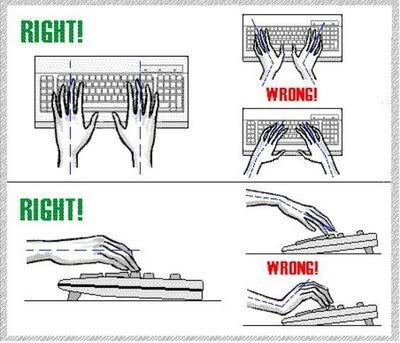
Lastly, a few sources recommended regular preventative stretching. This simple stretch can be helpful for both preventing and alleviating RSI:
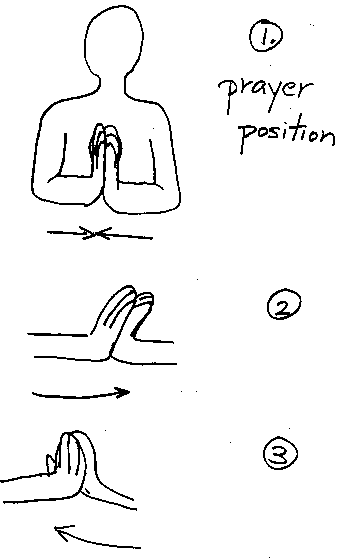
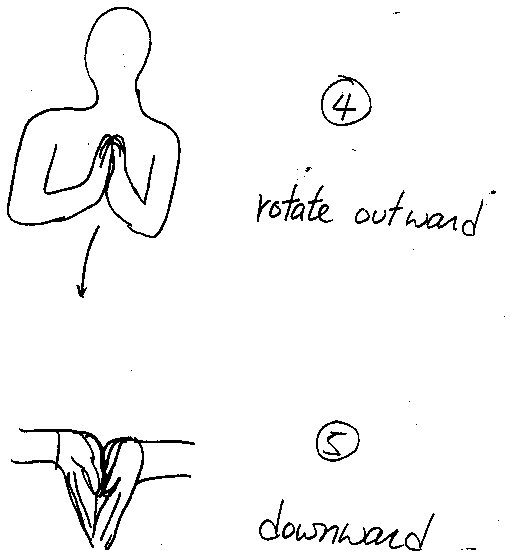
(1) Prayer Position. (2) Push fingers to the left. Then the right. (3) Rotate fingers towards the body. (4) Point fingers away from the body. (5) Point downwards. Hold for 15-30 seconds each. Don’t overdo. Source: Harvard RSI Action
Conclusion
It’s important to take care of your health while programming.The best medicine is preventative medicine. Take breaks, stretch, exercise, and go easy on your eyes and wrists. If you’re experiencing chronic back pain or symptoms of RSI, see a physical therapist and take action now to stop the buildup of damage to your body.
下载开源日报APP:https://openingsource.org/2579/
加入我们:https://openingsource.org/about/join/
关注我们:https://openingsource.org/about/love/
